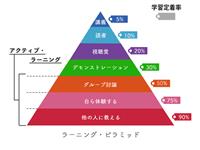Lesson 8
Accounting Information System
Exercise
Matching
For each numbered item, choose the appropriate journal and write the identifying letter.
1. Bought merchandise on account
2. Sold merchandise for cash
3. Bought merchandise for cash
4. Collected accounts receivable and allowed a cash discount
5. Bought store equipment on credit
6. Recorded accrued wages
7. Received credit memo for merchandise returned
8. Paid freight bill on merchandise purchased
9. Sold merchandise on account
10. Paid state unemployment tax
S
P
CR
CP
J
Sales journal
Purchases journal
Cash receipts journal
Cash payments journal
General journal
.
Problems
Transactions of Massey Inc. for the month of July are as follows:
(a) July
1
Issued Check No. 1001 in payment of rent for May, $1,200.
(b)
5
Purchased merchandise on account from McMillan Co., terms 2/10, n/30, FOB shipping point, $3,600.
(c)
9
Issued Check No. 1003 in payment of transportation charges on the merchandise purchased on May 2, $320.
(d)
11
Issued Check No. 1005 for office supplies purchased, $450.
(e)
13
Sold merchandise for cash, $15,900.
(f)
16
Received cash for office supplies sold to employees at cost, $120.
(g)
18
Purchased office equipment on account from Fender Office Products, $15,000.
(h)
24
Issued Credit Memorandum No. 801 for $400 to Waller Inc. for merchandise returned.
(i)
26
Issued Check No. 1040 in payment of dividends to stockholders, $10,000.
(j)
27
Sold merchandise on nonbank credit cards, $16,700.
(k)
30
Received $4,059 from Waller Inc. in payment of May 8 invoice, less return of May 12 and discount.
(l)
30
Issued Check No. 11342 in payment of office and sales salaries for May, $15,800.
(m)
31
Recorded adjusting entries from the work sheet prepared for the fiscal year ended July 31.
Massey Inc. maintains a purchases journal, a cash payments journal, a sales journal, a cash receipts journal, and a general journal. In addition, accounts receivable and accounts payable subsidiary edgers are used.
Instructions:
1. Indicate the journal in which each of the preceding transactions [(a) through (n)] would be recorded.
2. Indicate whether an account in the accounts receivable or accounts payable subsidiary ledgers would be affected for each of the preceding transactions.
3. Record transactions (b), (c), (d), (h), (i) and (k) in the appropriate journals.
中山大学:基础会计学(推荐下载):lesson08-exercises
| 课件名称: | 中山大学:基础会计学(推荐下载) |
| 课件分类: | 管理 |
| 课件类型: | 教学课件 |
| 文件大小: | 32.82MB |
| 下载次数: | 11 |
| 评论次数: | 8 |
| 用户评分: | 8 |
- 67. 中山大学:基础会计学(推荐下载):lesson03-selftest
- 68. 中山大学:基础会计学(推荐下载):Lesson04-exercises
- 69. 中山大学:基础会计学(推荐下载):lesson04-selftest
- 70. 中山大学:基础会计学(推荐下载):Lesson05-exercises
- 71. 中山大学:基础会计学(推荐下载):lesson05-selftest
- 72. 中山大学:基础会计学(推荐下载):Lesson06-exercises
- 73. 中山大学:基础会计学(推荐下载):lesson06-selftest
- 74. 中山大学:基础会计学(推荐下载):Lesson07-exercises
- 75. 中山大学:基础会计学(推荐下载):lesson07-selftest
- 76. 中山大学:基础会计学(推荐下载):lesson08-exercises
- 77. 中山大学:基础会计学(推荐下载):lesson08-selftest
- 78. 中山大学:基础会计学(推荐下载):Lesson09-exercises
- 79. 中山大学:基础会计学(推荐下载):lesson09-selftest
- 80. 中山大学:基础会计学(推荐下载):Lesson10-Exercises
- 81. 中山大学:基础会计学(推荐下载):lesson10-selftest
- 82. 中山大学:基础会计学(推荐下载):Lesson11-exercises
- 83. 中山大学:基础会计学(推荐下载):lesson11-selftest
- 84. 中山大学:基础会计学(推荐下载):Lesson12-exercises
- 85. 中山大学:基础会计学(推荐下载):lesson12-selftest



